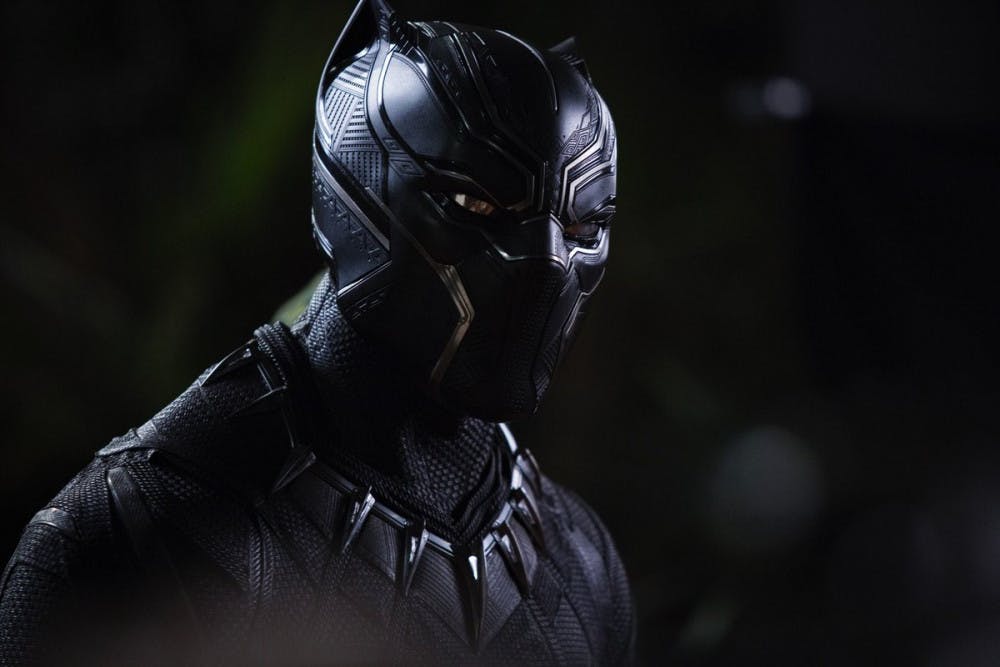By Darius Lewis
Correspondent
No recent film has managed to penetrate today’s cultural zeitgeist the way the film “Black Panther” has since its debut on Feb. 16. Many factors contribute to what is being dubbed a cultural movement — from the almost entirely black cast on the international stage to the representation of a fictional African country with advanced technology.
The film spits in the face of the racist perception of Africa as a perpetually impoverished continent devoid of intellectual innovation, all to the powerful soundtrack curated by rapper Kendrick Lamar.
While all of those socio-political components are incredibly important, “none of that matters if the film is trash,” said Ryan Coogler, the director of “Black Panther.”
Luckily for us, “Black Panther” delivers, and Marvel fans can say that this was one of the best blockbuster superhero films ever put to screen.
Coogler is all over this movie and its perfectly-paced script that balances character development and audience-pleasing action.
Though computer generated imagery was slightly overused in the last fight scene, Coogler’s work shines through in more grounded action sequences, especially the thrilling and chaotic scene set in a South Korean casino, which was filmed in one take and was similar in cinematography to the first boxing match in “Creed,” a 2015 film directed by Coogler.
The acting was just as good as the directing. Chadwick Boseman offers his composed, thoughtful portrayal of the titular Black Panther, also known as T’Challa. Our hero must learn quickly what it means to be a king — even his father, T’Chaka, doubted his leadership potential.
“You are a good man, and it is hard for a good man to be a king,” T’Chaka said.
This encapsulates the inner struggle that plagues T’Challa through the movie, and it makes for thrilling character moments for an otherwise stoic protagonist.
While Boseman did an excellent job, the female warriors stole the show, namely Lupita Nyong’o as Nakia, Danai Gurira as Okoye and Letitia Wright as Shuri, T’Challa’s little sister.
The dynamic between T’Challa and Shuri was hilariously clever. The natural portrayal of the relationship between an older brother and little sister makes the film that much more relatable and engrossing.
The film was wise to let the dynamic supporting cast shine. Angela Bassett also appears as T’Challa’s mother, however, her character was disappointingly underwritten, with barely enough lines for her appearance to count more than a cameo.
In terms of character development, Daniel Kaluyya’s character, W’Kabi, similarly disappointed the audience. The arc jumped around and lacked structure, almost as if scenes that elaborated on his relationship with T’Challa were cut out of the final version.
In terms of character depth, Michael B. Jordan’s Erik Killmonger was amazing and possessed fully realized motivations that acted as an antagonistic force. Killmonger is a welcome change in a franchise overrun with pale, flat villains that leave no lasting impression due to their floaty agendas or weak characterization.
Killmonger embodies the themes of African-American identity, the legacy of slavery and globalization over isolationism. His tragic backstory drove the pathos of the movie forward.
His character acts as the perfect foil to Black Panther, as his philosophy runs in complete opposition, effectively propelling T’Challa’s growth into the leader he was destined to become.
It would be tragic not to mention Andy Serkis as Ulysses Klaw. Serkis obviously had fun with his role and gave a dynamic, manic and calculated performance. The intense twists in his facial expressions captured a frantic energy for Klaw similar to his performance as Gollum from “The Lord of the Rings.”
“Black Panther” is a film that impacted both the Marvel Cinematic Universe and popular culture in general. Some fans are already excited for the second appearance of Wakanda in the next installment, “Avengers: Infinity War.”
We are constantly shaped by media, and the fact that there is an international film with positive portrayals and narratives based on African culture is inspiring.
With a current global box office draw of over $700 million, it is safe to say that movies that focus about black people do translate across cultures, and maybe the Hollywood blockbuster machine needs a cultural tune-up.
As Shuri said in the film, “Just because something works does not mean it cannot be improved.”







